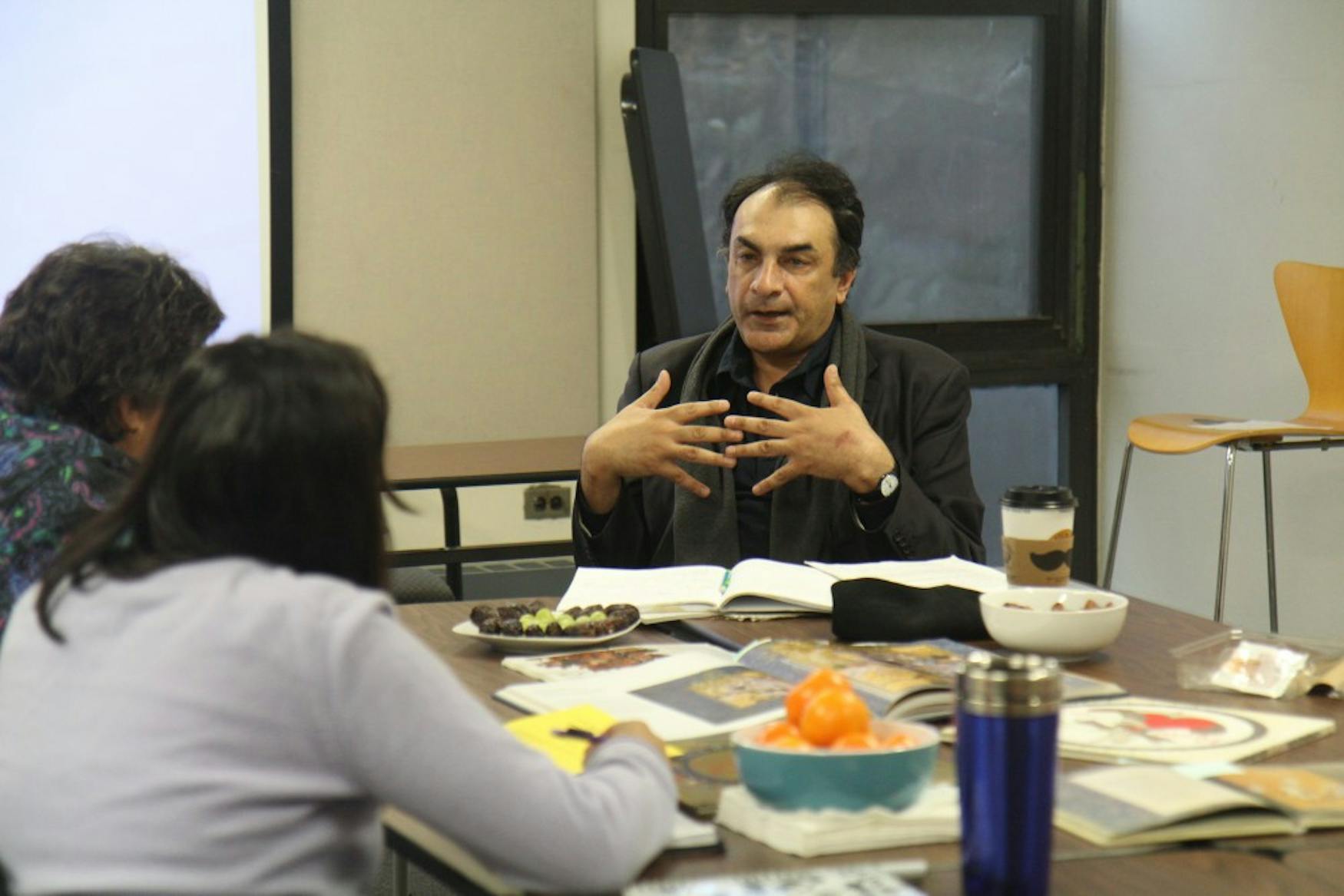Director-in-Residence analyzes Islamic art
Hafiz Karmali, an acclaimed international theater director and resident director at the University this semester, spoke on Islamic performing arts on Wednesday afternoon. He discussed various art styles, including theatre and dance, and how he incorporated them into his version of Jean-Claude Carriere and Peter Brook’s production of The Conference of the Birds, which premieres this weekend.
Because many of Karmali’s works incorporate religious topics, I asked after his presentation what some of his challenges were as a director and performer. He began by admitting that religion is a heavy topic andsaying that directing “is like walking on a tightrope.” He pays close attention to language and has become aware of what references and prayers are too personal to say aloud in front of an audience. Although representing religion through the arts is a challenge within itself, Karmali believes “there is only one sun and many rays,” meaning humans branch out into many different beliefs but are all connected by one thing—art.
In addition to being a director, Karmali has performed using Islamic and western theater styles. He favors highly stylized forms of dance-theatre to express his passion for religion and the arts. It is through performing arts that Karmali can discuss symbolism and humanity without mention of social constructs such as politics. Because he was raised by a religiously devout family and grew up surrounded by the arts, Karmali set off to find a way to combine both his devotion to religion and his passion for the arts. During his presentation I asked what triggered his interest in such a unique combination, and he said, “Greek theater started with a chorus that chanted to the gods and that is when I realized I could include my religion into theater.” He learned his passion for the arts could serve as a “platform for inter-religious dialogue,” so he received a Masters in Fine Arts in directing at Carnegie Mellon University. Shortly after, Karmali furthered his education through experience and work with the American Repertory Theater at Harvard.
By starting the presentation with a short lesson on Islamic history and acknowledging the difference between Sunni and Shia, Karmali helped me better understand how and why certain art forms he mentioned later came to be. Two similar styles of art that are still used today are known as Khayal, which comes from an Arabic word meaning imagination, and Karagoz, which means big black eye in Turkish. Both are forms of storytelling through shadow plays and puppetry. Although Karagoz is the more popular term for this style of expression, it incorporates paper puppets that are designed with intricate details. The puppets are then connected to long sticks for easy manipulation by the puppeteers.
Karmali discussed another art form popular in Islamic culture: Taziyeh. The term that sometimes connotes “passion” and refers to the reenactment of the death of a religious leader while uniting the community engaging in this event, similar to Christian nativity plays. The term Taziyeh comes from Iran but in Pakistan this theatrical style is known as Qawwali. There is a round platform at the center of the stage area that serves as the only set. Many actors are amateur citizens from the community who use basic materials such as bed sheets and clothing fabrics to create costumes before presenting the reenactment to the community.
The last art form Karmali discussed was Sama—a style of dance that entails whirling of the body and chanting as a form of praise toward God. Men wear long white skirts while raising their right hands in a cupped shape up toward the sun and their left hands down toward the earth. The dancers tilt their heads down as if looking at their hearts. In maintaining this position while spinning in circles to the left, the dancers are demonstrating the energy of the sun and the earth meeting in their hearts and giving them positive energy to share with the world. In The Conference of the Birds, Karmali incorporated this technique within the choreography to represent the birds as they travel throughout the play.
After first joining the Brandeis community by working with a couple of departments and professors on campus, including Prof. Judith Eisenberg (MUS) from the MusicUnitesUs program, Karmali is back to work with Brandeis theater students on his adaptation of The Conference of the Birds. Although Karmali has presented this play in previous years with other casts, he expressed his excitement for this particular production. Karmali serves as director of the play, but he is very flexible in allowing Brandeis actors to become involved in the creation process and showcase their strengths.




Please note All comments are eligible for publication in The Justice.